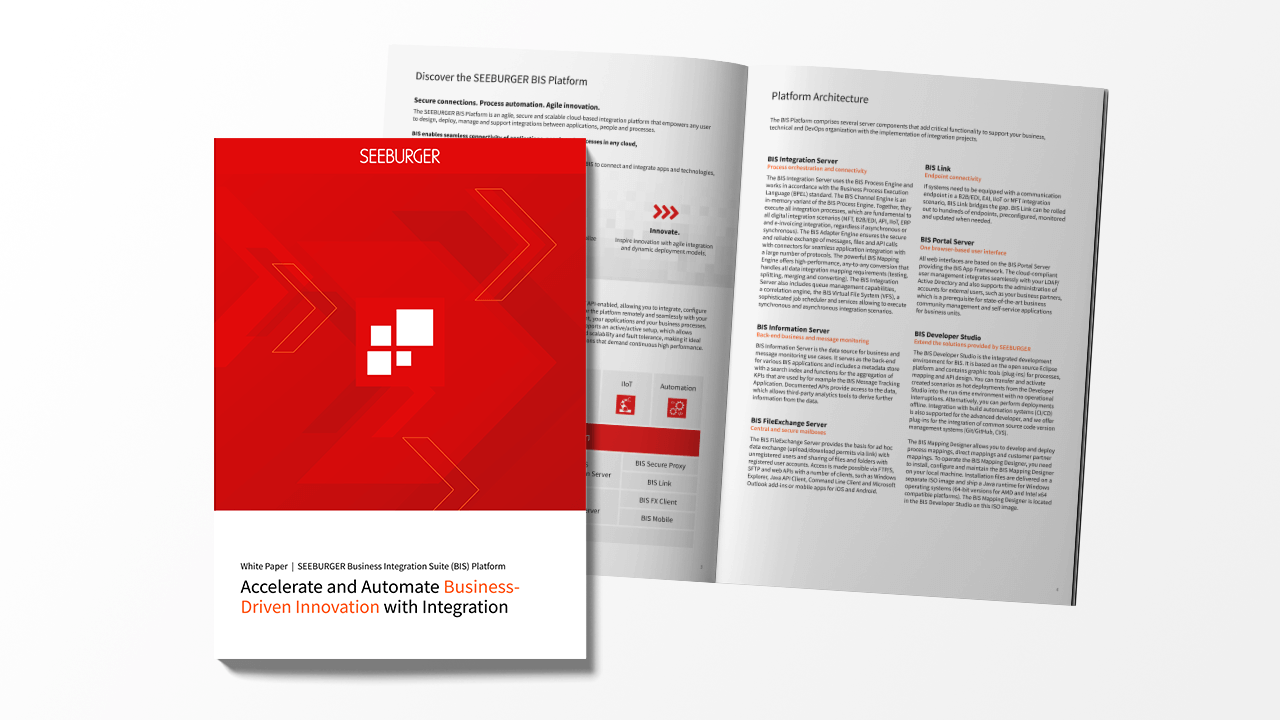
What Are EDI Benefits?
EDI allows electronic interchange of business information using standardized protocols and formats. These paperless business-to-business (B2B) transactions make EDI the standard of automating supply chain management (SCM) in many different industries.
EDI benefits have been around for a long time
B2B transactions using EDI have been around for such a long time that it has become an implicitness for many businesses. At the same time, companies are still using manual paper-based processes while they are dealing with trading partners with significant message counts and business volumes. Whether you're a customer or a supplier, there are many obvious EDI advantages for a digital supply chain to consider.
- storage
- filing
- postage
- document retrieval
- compliant handling
All those physical costs are greatly reduced or eliminated with EDI processes. Predictable and controllable electronic workflows automate ordering, delivery and invoicing and thus reduce the number of people involved significantly. Plus they add fast searching and easy archiving.
Because these inevitable commercial processes can become paperless EDI is also environmentally friendly.
This way Order-to-Cash and Purchase-to-Pay cycles can be accelerated a lot. For suppliers this means a more stable business situation due to more timely cash flows and for customers getting more trade discounts.
For example exchanging Advanced Shipping Notices (ASNs) is crucial for a smooth supply chain. An ASN is a digital document that provides information about a pending delivery. ASNs need to be sent when the shipment is done by a supplier enabling proper planning by the customer. Delayed ASNs can result in fines and/or decrease supplier ratings.
Inventories can be optimized by EDI SCM which shorten the order processing and delivery times so that inventory levels can be reduced. A higher percentage of accurate orders means there’s less need to carry excess stock in your supply chain. In addition, EDI records all transactions so you can analyze the performance of your supply chain and suppliers to better plan your optimum inventory levels.
Effectiveness through EDI is the prerequisite for optimal Supply Chain Management (SCM) and brings Vendor Managed Inventory (VMI) in the CPG/Retail Industry and Just-In-Time (JIT) as well as Just-In-Sequence (JIS) in the Automotive Industry to life.
Together with a streamlined documentation this helps to avoid fines or chargebacks due to SLA violations, payment delays, and performance gaps.
The ability to quickly connect with new trading partners who are demanding an EDI-based supply chain can make a significant difference.
EDI solutions are not just for big box retailers and large companies. EDI helps small businesses seamlessly transact with large and small trading partners. Whether you are trading with a large number of suppliers around the world or a small number of SME (small and medium enterprise) suppliers, EDI solves technical and business connection requirements. The EDI Capability benefits means taking your business to the next level and shifting focus from the processing of transactions to growing the business.

Best practices to enjoy the EDI benefits
In optimized supply chains time slack is reduced to the bare minimum. The risks of slow onboarding of new trading partners, of low EDI performance and unstable connections need to be minimized accordingly.
In case you only have a few major customers, you may be able to establish point-to-point connectivity with each individual customer. But if you have many customers or are looking to grow your business, it may be better to explore the services of an experienced EDI Cloud provider.









